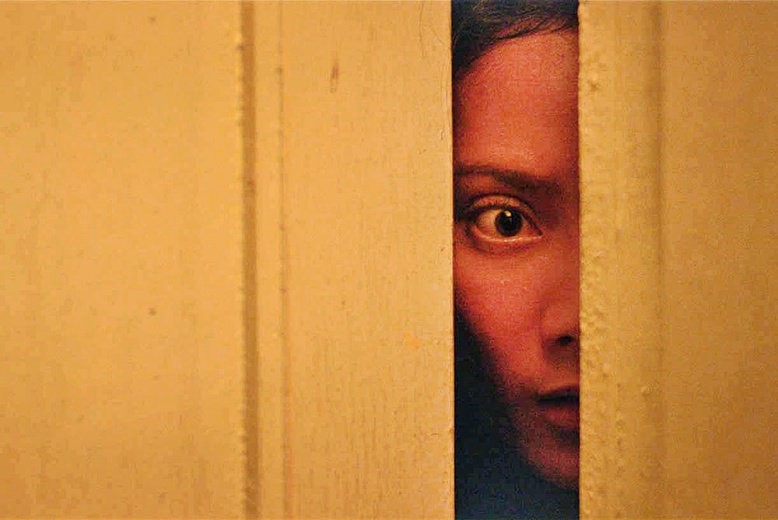Popular Reads
Top Results
Can't find what you're looking for?
View all search resultsPopular Reads
Top Results
Can't find what you're looking for?
View all search resultsPengabdi Setan: Right way to respect art and the past
There is finally a satisfying movie that is able to absolve the sins of the Indonesian horror film industry for at least this year.
Change text size
Gift Premium Articles
to Anyone
D
irector Joko Anwar, who has a penchant for the scary and shocking, has created a faithful remake of what Rolling Stone magazine calls the scariest Indonesian film of all time: 1980’s Pengabdi Setan (Satan’s Slave).
The remake expands on the original story and character structures. Both versions feature a strong but vulnerable female lead. In the remake, Tara Basro plays the female lead and she is supported by a troupe of actors such as Bront Palarae, Dimas Adhitya and legends such as Ayu Laksmi and Egy Fredly, who each really suit their respective roles.
The horror in this film is authentically true to the 1980s, relying mainly on the story events and incidents to scare the audience, instead of relying on CGI effects. Because the film deals with the classic battle between God and Satan, there is no doubt that the events in this film will lead viewers to either question their faith in God or try to self-righteously scold others for not having faith as strong as their own.
I predict that in conversations all over the country after the film, there will inevitably be some of those unbearable self-righteous people who will reference Pengabdi Setan as a way to criticize fellow Muslims who do not follow the five-time daily Islamic prayer schedule. Or maybe there will be parents who accompany their kids to the cinema and then use the old “if you don’t behave, the devil will get you” line to make them behave.
The film is presented in such a way that one can either feel incredibly good about their faith or really bad about it.
It is this battle between good and evil that makes the film so entertaining to watch. It’s presented in a way that you might want the devil’s side to win. But maybe that’s how Joko likes to mess with our moral identities.
Joko himself likes to dabble with uncertainty in his films, usually at the ending. The ending to his 2014 film A Copy of My Mind was left ambiguous enough for audiences to envision it for themselves, while others such as 2013’s Modus Anomali finishes with a sequence that suggests that events in the film may or may have not taken place at all.
The conclusion of this film does end the story in an interesting way, but the way it is presented could have been better.
The director has explained repeatedly that while he wanted his remake version of Pengabdi Setan to stay true to the horror of the original, he also wanted his film to be some kind of expansion of the Pengabdi Setan universe to make it his own. New characters, including two children played by Nasar Annuz and M. Adhiyat, add a greater family nuance to the picture and thus a larger sense of terror, because the more family members there are, the more outlets of fear.
These changes give viewers an updated perception of the past, adjusting the horror tastes of the past and molding them into the present. That way, the new Pengabdi Setan straddles a line between the past and the present, and pulls off its intention to both frighten all viewers and respect the artistry of the original with greatness. Upholding respect for the audience, the genre and the past is what differentiates this film from other Indonesian horror films of recent years.
Local horror films tend to attract condescension and skepticism from the Indonesian public (rightfully so) due to the fact that horror films on the market in recent years usually reek from the stench of amateurism or poor craftsmanship. With commercial success being the goal of many Indonesian filmmakers and large film studios, the horror genre is often toyed around with and disrespected in the quest to obtain high audience turnouts, thus embarrassing everyone that is involved in the process.
Therefore, the movie-going public tends to believe that Indonesia’s mightiest horror films were those made in the past. Classics such as the original 1980 Pengabdi Setan, 1988’s Malam Satu Suro (The Eve of First Suro) and 1981’sSundelbolong deliver an intense creepiness that was able to effectively scare the public despite the low-tech methods of capturing sound and vision.
With a grainy, low-budget appearance, straightforward storylines (usually about mystical beings) and relatively better horror acting, these films are able to stand the test of time and frighten people of many generations without the dependence of marketing gimmicks and visible, desperate attempts at commercial success.
But success is an aspiration that is necessary for artists to press on with their work. Even Joko admits that he has fears that this remake might not be a commercial success, but comforts himself with the certain satisfaction in the end product: settling on the realization that making a lifelong dream come true in the palm of his hands is good enough.











